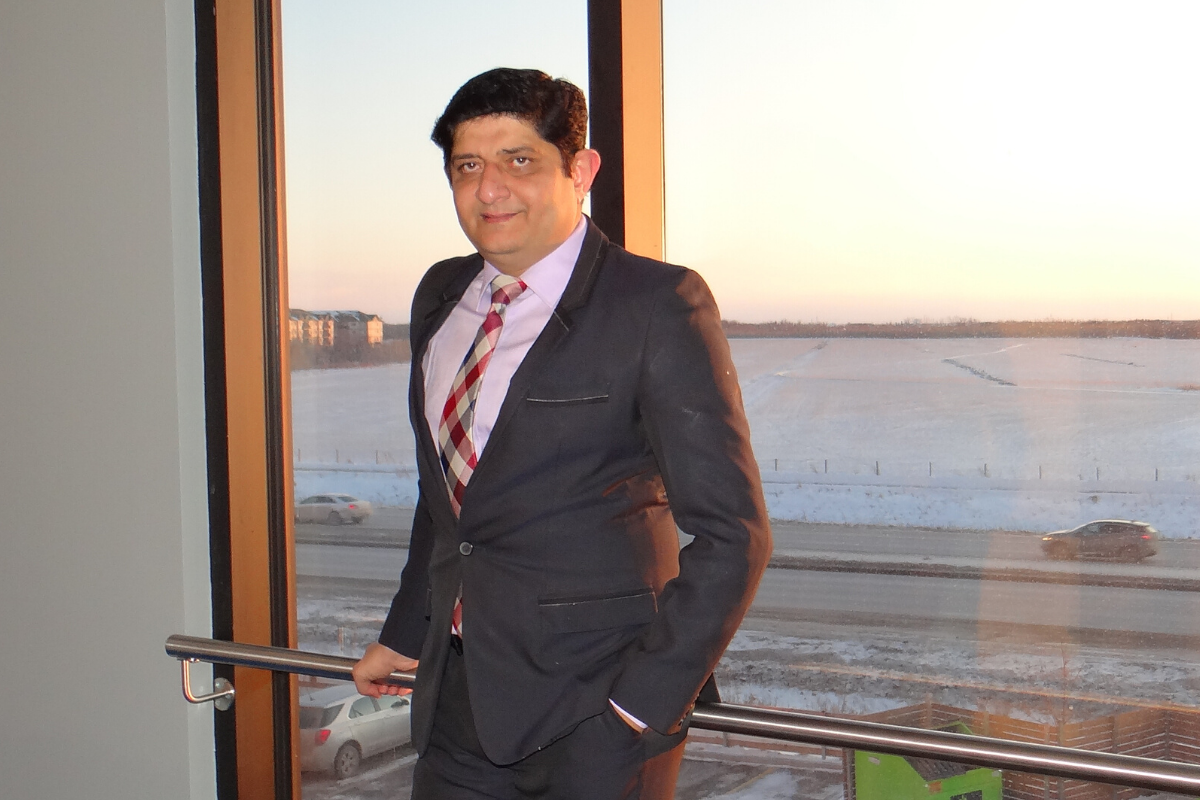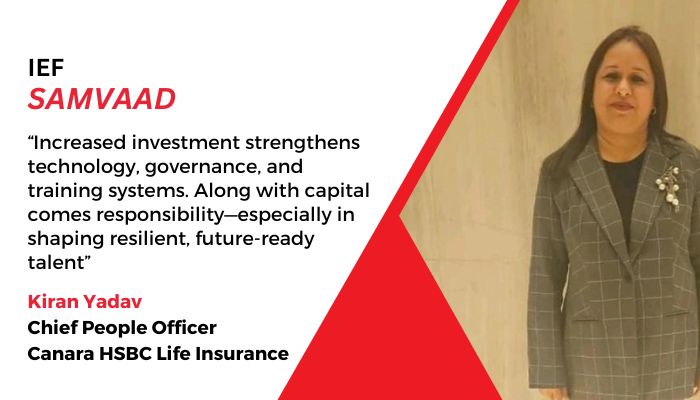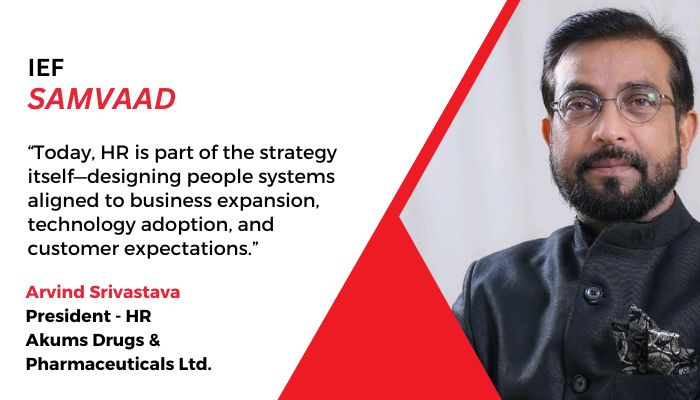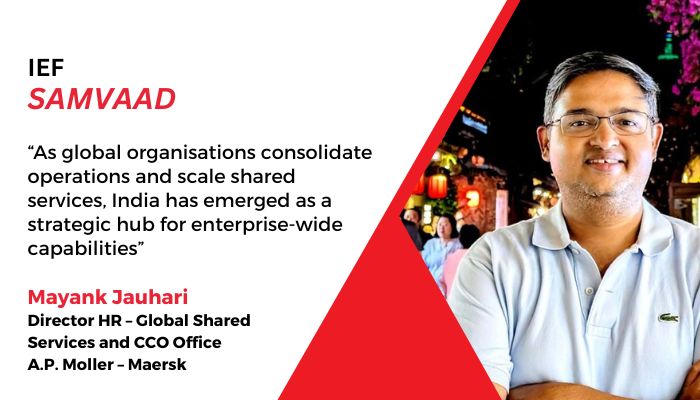Sarwajeet Pandey, founder CEO of Bulls Eye Private Limited, is of the view that demand revival and consumer confidence hold the key at this point in time
Q. When and how did you decide to become an entrepreneur?
The idea to be an entrepreneur was there since early days. But being from a middle-class family, it was never easy. I followed the conventional way of doing studies, and higher studies, getting a job and establishing myself to secure my future. Once I felt reasonably secure financially, which meant a couple of debt free assets and liquidity to last few years, I took the plunge to start my own venture.
The reason for me to become an entrepreneur was mainly to control my own destiny. I wanted a successful life journey and not a successful career. The appetite for risk was always high as I am a natural risk taker. Money has never been something which is the end motive. Satisfaction towards life and freedom to live each day on my own terms was the real motivator. Travelling and exploring the globe and witnessing diverse cultures was always a passion. I have travelled to more than 30 countries with my wife and 2 kids (both 10 years old) in the last few years. This has been a unique experience to travel so vast and wide. To me, this is success. The target is to cover and experience more than 100 countries in the next 10 years.
Q. Did you face bureaucratic and regulatory hassles which impeded your journey to entrepreneurship?
Personally, I did not face any bureaucratic and regulatory hassle while starting my business. As it was all self funded, the accessibility of funds which most entrepreneurs need as support was not relevant. But after I started my company, I faced few challenges in terms of managing my cash flow. When you work for a client as a start up, there can be delays in realizing your payments from your clients. But the company needs to pay GST upfront even if the payments are pending from the clients’ end. Otherwise, if you fail to pay GST on the raised invoice, you tend to pay interest on each day lapsed, and if the time gap is more than 6 months, you can be prosecuted by the government. This becomes extremely difficult to manage. On one hand, one needs to manage the clients, where one can only exert a limited amount of pressure to realize payments, especially when you are a start up; on the other hand you need to pay taxes for the unrealized payments which are due to come from a client. This cash flow management was a major challenge for me in the initial years. The government should act as an enabler to start ups, at least for the first couple of years of operation. Even the income tax department does not support the way it is expected to.
You might also be interested to read: ‘Fiscal Reforms Are Extremely Crucial For Sustainable Growth And Equity’ – Ajay Agarwal, Partner -Triage Advisors
Q. You shuffle between India and Canada on business. What’s your take on relative difference in terms of ease of doing business between the two nations?
My experience of Canada is very pleasant as an investor who spends a considerable time there. The overall approach towards new migrants and entrants is unbelievable. The government supports you with slightest and minutest details. There is a four-day mandatory program sponsored by the Canadian government where they help you settle. This shows the proactive approach of the Canadian government. In this regard, the Indian government needs to cut red tape and become more proactive. There is some scope of improvement.
In Canada, there is a special presentation at the World Trade Centre, to help you start your business. It is a one-stop shop for all your needs and support where all your queries are resolved and provided for. From starting your company, to obtaining a license, to securing financial aid (depending on your credit worthiness). The approach of the staff is so professional as they want you to be successful in your respective endeavors and field of interest.
Hence, for me to start a branch of my company was an absolute cakewalk. It took me all of 72 hours to get done with the entire paperwork and the government provided financial aid. Till the company becomes profitable, we are getting GST AID from the government, just the opposite of what you have in India. The overall approach of the government there is an absolute delight.
Q. What’s some of your top expectations from the budget?
India’s economy is going through one of the worst periods of slowdown. Cutting Personal income tax is extremely important and high on expectation from Budget 2020. If people save more on taxes, they can spend more leading to an increased demand. Sector specific boosters are necessary to revive overall demand growth especially manufacturing, infra and construction sectors. Government needs a balanced approach to manage fiscal deficit targets and growth. Government should not be too worried about fiscal deficit and should focus more on the growth of major sectors like manufacturing, infra and construction sectors. This will also help to address major problems that the country is facing in terms of unemployment. Demand revival and consumer confidence hold the key at this point in time.
Q. How do you see the world of jobs transforming in the fast evolving future of work?
The world of jobs is undergoing unique changes in the fast evolving global economy. It is mainly driven by technological innovation and globalization. Technology and automation are creating new opportunities for more job creation. Employees are expected to keep their skills relevant.
Non-Permanent and remote workers are expected to be a major part of the company’s workforce. Greater part of full-time employees are working on the cloud and multinational companies have teams at different offices across the globe interacting on a daily basis. Technology has allowed work and collaboration to transcend geographical boundaries. We should see an increasing focus on global online collaboration.
Q. What’s your success mantra? What advice would you give to budding entrepreneurs?
For me, a success mantra is to have an appetite and generosity to take risks. I have always focused on a successful and satisfying life, rather than on an ambitious career. We also need to have financial wisdom and discipline before we decide to take off as an entrepreneur. For me, ‘Passion to succeed and fearless to failures’ is the key. We should never be fearful that we might fail, but on the contrary, we have to climb each step of the ladder with absolute Passion and belief.
We also need to build on a dependable team. I was lucky as we started with a group of five known people each with different skill sets. All of them were people of complete trust and dedicated passion. As stated above, money has never been high on my agenda. It’s a peaceful coexistence with key team members, sharing profit with them and ring fencing the other key employees is the key. Delegation of authority is also extremely vital. Last, but not the least, is one’s people’s skill. If your employees and staff are happy and satisfied, it gets clearly reflected on the clients’ interaction on a day to day basis.
About Sarwajeet Pandey
Sarwajeet Pandey has more than 20 years of work experience in Service industry. He has worked across business with top retail and financial organizations like Walgreens Incorporation, HSBC Bank, GE SBI Cards and Standard Chartered Bank.
Post doing his MBA from Christians Brothers University, Memphis TN, US, Sarwajeet started working for Walgreens Incorporation as a business analyst, doing product line analyses across stores and business looking into problems with the existing products and opportunities for introducing new product lines. Sarwajeet started his journey as an Entrepreneur in 2015 and is founder CEO of Bulls Eye Private Limited.
You might also be interested to read:An Agile Philosophy in HR Management Helps Retain the Right Employees






